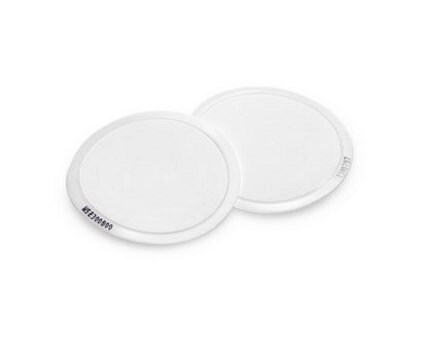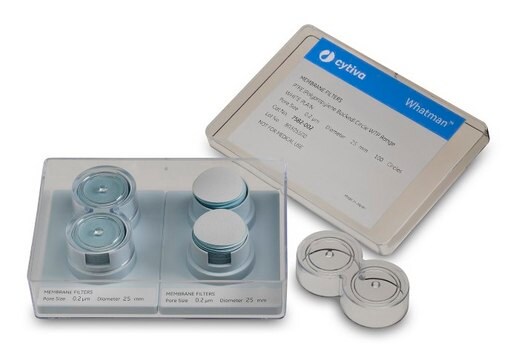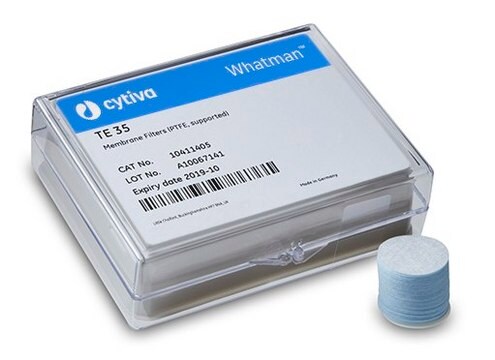FALP04700
PTFE Membrane Filter, 1.0 μm Pore Size
Fluoropore®, filter diam. 47 mm, hydrophobic
Synonym(s):
Fluoropore® Membrane Filter, Hydrophobic Polytetrafluoroethylene membrane filter discs
About This Item
Recommended Products
material
PTFE membrane
plain filter
white filter
sterility
non-sterile
feature
hydrophobic
manufacturer/tradename
Fluoropore®
Millipore
parameter
≥150 mL/min-cm2 flow rate (27.5inHg, methanol)
≥300 mL/min-cm2 air flow rate (Gurley)
130 °C max. temp. (Curling observed at elevated temperatures)
filter diam.
47 mm
thickness
≥100 μm
gravimetric extractables
≤0.5%
matrix
Fluoropore®
pore size
1.0 μm pore size
≥65 % porosity
bubble point
≥6.5 psi (0.45 bar), air with methanol at 23 °C
shipped in
ambient
Looking for similar products? Visit Product Comparison Guide
General description
Application
- Clarifying acids, bases, and solvents
- Filtering or venting gases
- UV spectroscopy
- Particle monitoring
- HPLC, UPLC, LC-MS/MS mobile phase filtration
- Microplastics analysis
Features and Benefits
- Fluoropore® membranes display consistency and provide broad chemical compatibility.
- Biologically and chemically inert.
- High porosity yields high flow rates.
- Available for filtration of aqueous and organic-based samples.
Legal Information
Certificates of Analysis (COA)
Search for Certificates of Analysis (COA) by entering the products Lot/Batch Number. Lot and Batch Numbers can be found on a product’s label following the words ‘Lot’ or ‘Batch’.
Already Own This Product?
Find documentation for the products that you have recently purchased in the Document Library.
Customers Also Viewed
Our team of scientists has experience in all areas of research including Life Science, Material Science, Chemical Synthesis, Chromatography, Analytical and many others.
Contact Technical Service




